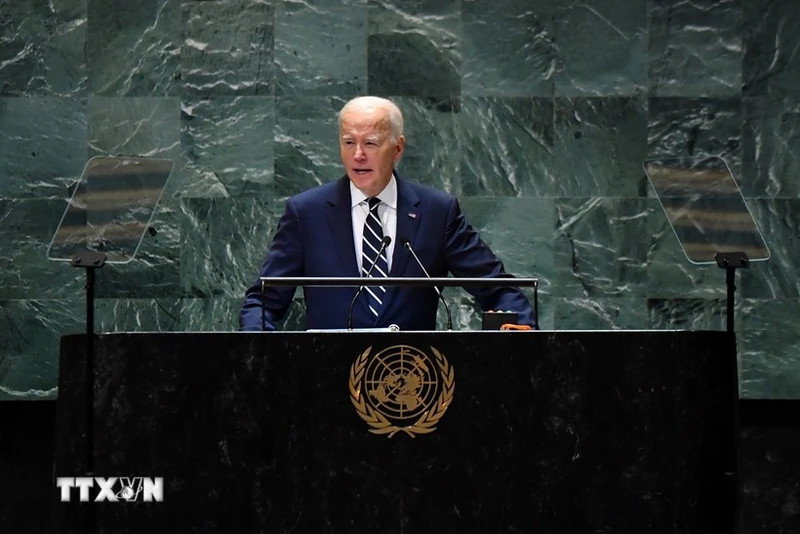On September 24 (New York time), President Biden delivered a speech at the United Nations General Assembly. He noted that this was his fourth and final address to the UN General Assembly as U.S. President.
Reflecting on key moments in his political career, which began when he was elected a U.S. Senator at the age of 29 in 1972, Biden once again highlighted the historic milestone of upgrading U.S.-Vietnam relations.

In his speech, President Biden shared that throughout his political career, he has witnessed both the United States and the world overcome many challenges of division and hatred. He acknowledged that these processes were never easy or free of obstacles.
He referenced the end of the Vietnam War - the longest war in U.S. history at that time - as an example, noting that America was "divided and angry" and faced an uncertain future.
Biden recounted the significant moment when former enemies, the U.S. and Vietnam, joined hands during his visit to Vietnam in September 2023, when the two nations officially elevated their relationship to a Comprehensive Strategic Partnership.
“Last year, in Hanoi, I met with Vietnamese leaders, and together, we agreed to elevate our partnership to the highest level. This is a testament to the resilience of the human spirit and the ability to reconcile, where today, the U.S. and Vietnam are partners and friends,” Biden shared.
“It is proof that even in the horrors of war, there can be a way forward. Things can get better,” he emphasized. “We must never forget that.”
General Secretary and President To Lam calls U.S.-Vietnam relations a rare journey
General Secretary and President To Lam, currently on a working visit to the U.S. to attend United Nations meetings, reflected on the significance of the partnership between the two nations during a ceremony on September 23, marking the one-year anniversary of the Comprehensive Strategic Partnership and looking ahead to the 30th anniversary of diplomatic relations in 2025.
Mr. To Lam described the history of Vietnam-U.S. relations as a rare journey, serving as a model in international relations for post-war reconciliation and relationship building.
“Thirty years ago, even the most optimistic individuals could not have imagined how Vietnam and the U.S. would overcome the pains of war to build and develop a strong and positive relationship like we have today,” he remarked.
This achievement, he noted, is the result of tireless efforts to heal and build trust over the past three decades by generations of leaders, governments, and citizens from both countries.
Since the normalization of relations, many Vietnamese leaders have visited the U.S., and every U.S. President since the normalization has visited Vietnam.
Cooperation between the two countries has made significant, substantive progress across all fields, including politics, diplomacy, economics, trade, defense, security, war legacy remediation, education, people-to-people exchanges, and in addressing regional and global issues such as climate change, terrorism, and peacekeeping operations under the UN.
People-to-people exchanges and educational cooperation, in particular, have flourished. Currently, about 30,000 Vietnamese students are studying in the United States.
Tran Thuong